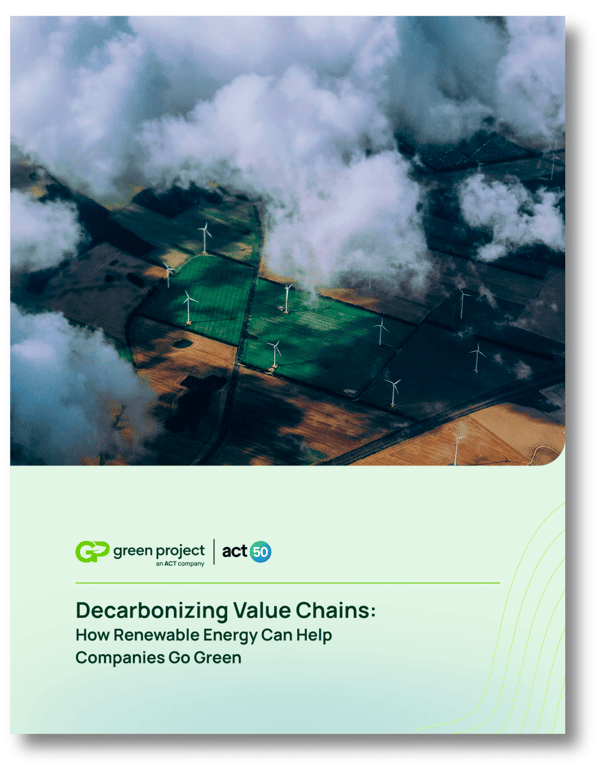Decarbonizing Value Chains
Learn how renewable energy can help your company go green.

Key Takeaways
1. Scope 3 emissions are the largest and most complex to tackle
While companies have made strides in reducing Scope 1 and 2 emissions, Scope 3 emissions — especially those from suppliers — often make up the largest portion of a company’s carbon footprint. Tackling these indirect emissions requires deeper collaboration across the value chain, not just internal decarbonization efforts.
2. Supplier engagement is critical — and often overlooked
Many suppliers, particularly small and mid-sized ones, lack the resources or expertise to participate in corporate climate programs. The ebook emphasizes that companies need tools and strategies to make renewable energy adoption more accessible — from simplifying procurement processes to providing education and support.
3. Market-based instruments like EACs enable scalable climate action
The ebook highlights how renewable energy certificates (EACs) — when used responsibly — can help suppliers demonstrate credible progress. Digital platforms like Green Project’s act50 make it easier for companies to engage suppliers in auditable, traceable renewable energy procurement, enabling climate impact at scale.
Frequently asked questions
Why does renewable energy matter for my supply chain?
Because up to 40% of your emissions likely come from it. Renewable energy is a proven way to cut Scope 3 emissions and meet investor and regulatory expectations.
What’s the easiest first step toward value chain decarbonization?
Start by asking suppliers to report their emissions. With better data, you can take meaningful action and build a credible reduction strategy. Learn more about your decarbonization journey here.
How can I count supplier actions toward my Net Zero goals?
When suppliers procure renewable electricity (and meet quality standards), those reductions can be reflected in your Scope 3 footprint. Get in touch with our sustainability experts to learn how to engage your suppliers.
What are EACs, and do I really need them?
Energy Attribute Certificates (EACs) are how you credibly claim renewable electricity use. They’re essential for emissions accounting under the GHG Protocol. Learn more about the EAC Market here.
Is this realistic for smaller or global suppliers?
Yes. Even SMEs or suppliers in leased spaces can use low-barrier tools like unbundled EACs to participate—no complex infrastructure needed. Find out about how suppliers can participate here.
